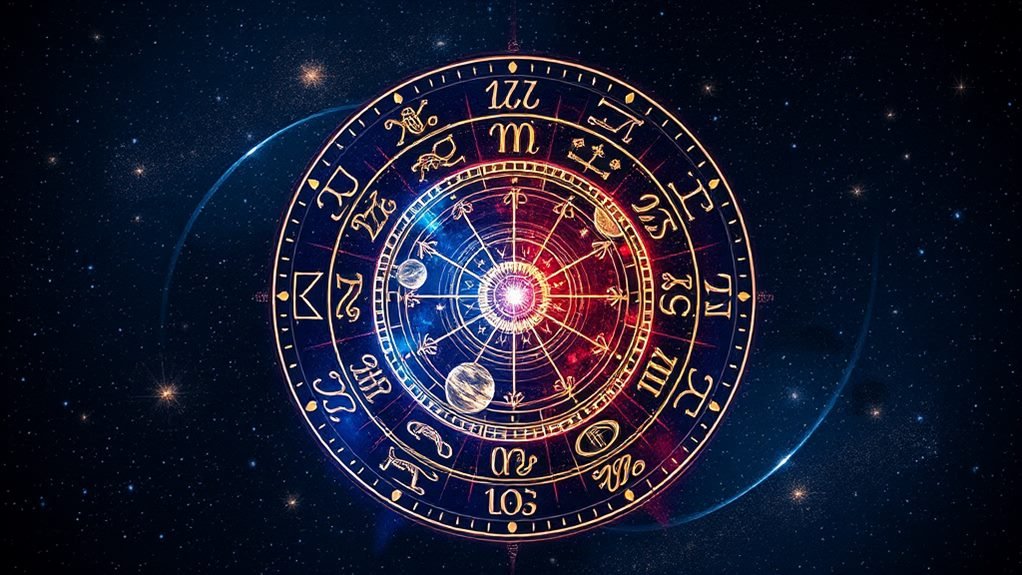People Who Believe In Astrology
Are you intrigued by the celestial dance of planets and stars? Do you find yourself drawn to the wisdom of the cosmos? You're not alone. Astrology, the ancient practice of interpreting celestial movements and their influence on human affairs, captivates a vast and diverse global audience. From casual horoscope readers seeking daily guidance to dedicated believers exploring profound cosmic meaning, astrology offers a unique lens through which to understand ourselves and our place in the universe. This exploration into celestial interpretations provides not just glimpses into personality traits and life paths, but also a framework for navigating life's complexities. But what truly motivates individuals to embrace astrological beliefs in a world increasingly dominated by science and reason? How do personal experiences and cultural backgrounds shape this enduring faith? Let's delve into the fascinating world of astrology enthusiasts to uncover the answers.
This blog post will explore the captivating world of astrology followers, examining their demographics, motivations, the influence of culture, the role of community, and the challenges they face. Discover the compelling narrative behind those who find solace, guidance, and understanding in the stars. For those seeking deeper insights into love and relationships, explore our Love Spells Collection to enhance your romantic journey.
Key Takeaways
- Diverse Demographics: Astrology followers span various age groups and educational backgrounds, demonstrating its broad appeal.
- Varied Motivations: Individuals are driven by a quest for guidance, self-understanding, and resonance with personal experiences.
- Cultural Significance: Cultural factors exert a strong influence on the adoption and practice of astrological beliefs across the globe.
- Community Validation: Supportive communities play a crucial role in validating and reinforcing astrological beliefs.
- Navigating Skepticism: Believers often encounter challenges, including skepticism, lack of societal acceptance, and conflicts with scientific perspectives.
Demographics of Astrology Followers: Who Believes?
Image: A visual representation of the diverse age and education levels of astrology enthusiasts.
The landscape of astrology followers is remarkably diverse, encompassing individuals from various age groups and educational backgrounds. This ancient practice attracts a wide spectrum of people, dispelling the myth that it's solely for a specific demographic. From young adults navigating career paths and relationships to retirees embarking on journeys of self-discovery in their later years, astrology's appeal is truly age-inclusive.
Furthermore, the educational attainment of astrology enthusiasts is equally varied. You'll find believers among high school graduates, college students pursuing higher education, and even those holding postgraduate degrees. This wide range of educational backgrounds underscores astrology's capacity to resonate with individuals regardless of their academic pursuits. It's clear that the allure of astrology transcends traditional boundaries, captivating minds across all walks of life and educational levels.
Whether drawn to astrology for entertainment, spiritual enrichment, or a profound sense of connection to the cosmos, its enduring relevance in contemporary society is undeniable. It continues to attract a broad spectrum of followers, proving its timeless appeal and adaptability in a rapidly changing world.
Motivations for Believing in Astrology: Why Do People Turn to the Stars?
The reasons behind believing in astrology are multifaceted, often stemming from a blend of personal experiences, deep-rooted cultural influences, and an innate desire for guidance and self-understanding. For many, belief is solidified by personal experiences where astrological insights appear to align significantly with events or feelings in their lives. These moments of resonance can be powerful catalysts in strengthening one's faith in astrology's predictive and descriptive capabilities.
Cultural influences also play a pivotal role. Belief in astrology is frequently passed down through generations, becoming ingrained as a cultural norm or tradition. Societal prevalence, whether through media, community practices, or family customs, further shapes and reinforces these beliefs. Moreover, the fundamental human desire for guidance in an often unpredictable world is a strong motivator. People seek answers through astrology, hoping to gain clarity, direction, and a deeper understanding of themselves and their life's journey.
Whether individuals are seeking reassurance during uncertain times, a sense of direction when facing important decisions, or simply a comforting connection to something larger than themselves, these powerful motivations drive them to explore astrology. It offers a unique framework for navigating life's inherent complexities and finding personal meaning within the cosmic tapestry.
Influence of Cultural Factors: Astrology Across the Globe
Image: Illustrating the diverse cultural integration of astrology in Eastern and Western societies.
Cultural factors are instrumental in shaping how individuals perceive and engage with astrology. Across various cultures, astrology is not merely a fringe interest but is deeply woven into the fabric of belief systems and traditional practices. This cultural integration profoundly influences how people interpret celestial influences and apply them to their daily lives.
For example, in Eastern cultures, such as China and India, astrology holds a prominent place in everyday decision-making. It's consulted for significant life events like marriages, career choices, and even health-related matters. Astrology in these cultures is often intertwined with religious and philosophical traditions, granting it a level of societal acceptance and practical application rarely seen in the West. In contrast, Western societies often encounter astrology through more popularized forms, such as horoscopes in newspapers, magazines, and online platforms. While perhaps less deeply integrated into formal decision-making processes, it still caters to a vast audience seeking daily insights and entertainment.
Historical legacies, religious beliefs, and prevailing societal norms all contribute to the unique cultural acceptance and practice of astrology worldwide. To truly understand the widespread belief in astrology and its enduring popularity, it's essential to consider these diverse cultural factors and their profound impact on shaping astrological traditions and interpretations.
Community Reinforcement and Validation: Finding Like-Minded Souls
The strength of belief systems, particularly those like astrology, is significantly bolstered by validation and reinforcement within communities. Individuals who resonate with astrology often naturally gravitate towards like-minded communities where their beliefs are shared and understood. These communities provide a crucial sense of belonging and mutual understanding, which in turn deeply reinforces an individual's faith in astrological principles.
The digital age has expanded these communities exponentially. Online platforms, dedicated social media groups, and astrology-themed events create easily accessible supportive environments. Within these spaces, believers find affirmation, encouragement, and a collective understanding of their astrological perspectives. This validation from community members plays a vital role in fostering confidence in one's own astrological beliefs and practices.
Furthermore, ongoing discussions, the sharing of personal experiences interpreted through an astrological lens, and collective reinforcement within these communities contribute to the continued growth and widespread prevalence of astrology as a recognized belief system in modern society. This communal aspect underscores the social and emotional needs that astrology belief systems often fulfill. If you are seeking deeper connection in your relationships, consider exploring our Love Spells Collection to enhance your bonds and attract positive energies.
Challenges Faced by Astrology Believers: Navigating Skepticism
Image: Depicting the societal skepticism faced by those who believe in astrology.
Despite the personal conviction and communal support astrology believers find, they often face significant challenges in navigating societal perceptions and personal dilemmas. These obstacles can impact not only their interactions with others but also their own faith when confronted with a world that often prioritizes empirical evidence and rationality. Astrology believers frequently encounter:
- Misconceptions and Ridicule: Skeptics and non-believers may dismiss astrology as pseudoscience, leading to mockery and misunderstandings.
- Lack of Acceptance: Finding acceptance among peers and family members who do not share their beliefs can be difficult, sometimes leading to feelings of isolation.
- Internal Conflicts: When astrological predictions do not materialize as expected, believers may experience internal doubt and conflict with their faith.
- Balancing Belief and Science: Reconciling astrological beliefs with scientific scrutiny and criticism from the broader scientific community poses an ongoing challenge.
- Credibility in Non-Astrological Settings: Maintaining professional credibility in environments that do not value or understand astrology can be a delicate balancing act.
These challenges underscore the complex dynamic that astrology believers must navigate. They often find themselves bridging the gap between their deeply held beliefs and the expectations and judgments of a society that may not fully understand or accept their worldview.
The Enduring Appeal: Why Astrology Still Matters
In a world driven by data and scientific rationalism, the continued popularity of astrology might seem paradoxical. Yet, it endures because it fulfills fundamental human needs – the need for meaning, for guidance, and for connection. Astrology offers a framework for self-reflection, providing insights into personality traits, potential life paths, and even relationship dynamics. It's a tool for introspection, helping individuals understand themselves and their place in the larger cosmic order.
Moreover, astrology provides a sense of control in an uncertain world. By offering potential future scenarios and guidance, it can alleviate anxiety and empower individuals to make more informed decisions, or at least feel more prepared for what lies ahead. This sense of agency, even if perceived, is deeply comforting. The community aspect is also vital. Astrology communities offer support, validation, and a sense of belonging. In an increasingly fragmented world, these communities provide a space for shared beliefs and mutual understanding.
Ultimately, the enduring appeal of astrology lies in its ability to blend ancient wisdom with personal relevance. It's a system that adapts to modern life while continuing to address timeless human questions about purpose, destiny, and the mysteries of existence.
Astrology and Self-Discovery: A Path to Personal Insight
Beyond predictions and guidance, astrology serves as a powerful tool for self-discovery and personal insight. Delving into your birth chart, for example, can reveal intricate details about your personality, strengths, weaknesses, and inherent tendencies. This process is akin to holding up a cosmic mirror to your soul, reflecting back aspects of yourself that you may not have fully realized or understood.
Astrology encourages introspection. By examining planetary placements and astrological aspects, individuals can gain a deeper understanding of their emotional patterns, communication styles, and motivations. This self-awareness can be transformative, fostering personal growth and more conscious decision-making in various areas of life, from relationships to career paths. It's about using the symbolic language of astrology to unlock hidden layers of your own psyche and potential.
The Role of Astrology in Relationships: Understanding Compatibility
Many astrology enthusiasts utilize astrological charts to explore and understand relationship dynamics and compatibility. Synastry, the practice of comparing two birth charts, offers insights into the potential strengths and challenges within a relationship. By examining planetary interactions between two individuals, astrologers can identify areas of harmony, friction, and mutual growth.
Astrology can highlight communication styles, emotional needs, and core values, helping partners understand each other on a deeper level. While not a definitive predictor of relationship success or failure, it serves as a valuable tool for enhancing empathy, improving communication, and navigating potential conflicts with greater awareness and understanding. For those seeking to enhance their romantic connections, our Love Spells Collection offers further avenues to nurture love and attraction.
Astrology and Major Life Decisions: Seeking Cosmic Timing
For some believers, astrology plays a significant role in timing major life decisions. Electional astrology, a specialized branch, focuses on selecting auspicious dates and times for important events such as starting a business, getting married, or launching a new project. The aim is to align actions with favorable planetary configurations to maximize the chances of success and positive outcomes.
While not everyone relies on electional astrology, many find comfort in consulting astrological transits and cycles before embarking on significant life changes. This practice reflects a desire to harmonize personal endeavors with perceived cosmic rhythms, seeking to leverage celestial energies to support their goals and aspirations. It's about working in concert with, rather than against, the flow of the universe, as believers interpret it.
Astrology in the Digital Age: Accessibility and Information
The digital age has revolutionized access to astrology, making it more accessible and information-rich than ever before. Numerous websites, apps, and online communities offer a wealth of astrological resources, from free daily horoscopes to in-depth birth chart readings. This digital accessibility has democratized astrology, allowing anyone with an internet connection to explore its principles and practices.
Online platforms have also fostered vibrant communities where enthusiasts can connect, share insights, and learn from each other. The ease of access to astrological information and community support has undoubtedly contributed to the continued growth and evolution of astrology in the 21st century. It's a testament to its adaptability and enduring appeal in a technologically advanced world.
Conclusion: Astrology Believers in a Modern World
In conclusion, the diverse demographics of astrology followers are united by a common thread: a desire to seek guidance and deeper self-understanding through astrological insights, often fueled by personal experiences and cultural influences. They find validation and strength within supportive communities, yet also navigate the persistent challenges of skepticism and the need to reconcile their beliefs in non-astrological contexts.
Like celestial bodies charting their courses across the vast cosmos, astrology believers strive to harmonize their deeply held convictions with the rational scrutiny of the modern world. Their enduring faith speaks to the timeless human quest for meaning, connection, and a sense of place within the grand tapestry of the universe.
Frequently Asked Questions About Astrology Believers
-
What types of people believe in astrology?
Astrology believers come from all walks of life, spanning diverse age groups, educational backgrounds, and professions. There is no single demographic profile; its appeal is remarkably broad.
-
Why do people believe in astrology when science often refutes it?
Belief in astrology is often rooted in personal experiences, cultural traditions, and a desire for meaning and guidance. For many, it's not about scientific validation but personal resonance and the perceived value it brings to their lives.
-
How does culture influence belief in astrology?
Culture plays a significant role by embedding astrology within traditions, belief systems, and societal norms. In some cultures, it's deeply integrated into daily life, while in others, it's more of a popular or entertainment-focused interest.
-
What are the benefits of astrology communities?
Astrology communities provide validation, support, and a sense of belonging for believers. They offer spaces to share experiences, learn more about astrology, and reinforce their beliefs in a like-minded environment.
-
What are the main challenges faced by astrology believers?
Challenges include societal skepticism and ridicule, lack of acceptance from non-believers, internal conflicts when predictions fail, and the need to reconcile belief with scientific perspectives in mainstream society.
🔴 Need Clarity on your Situation?






